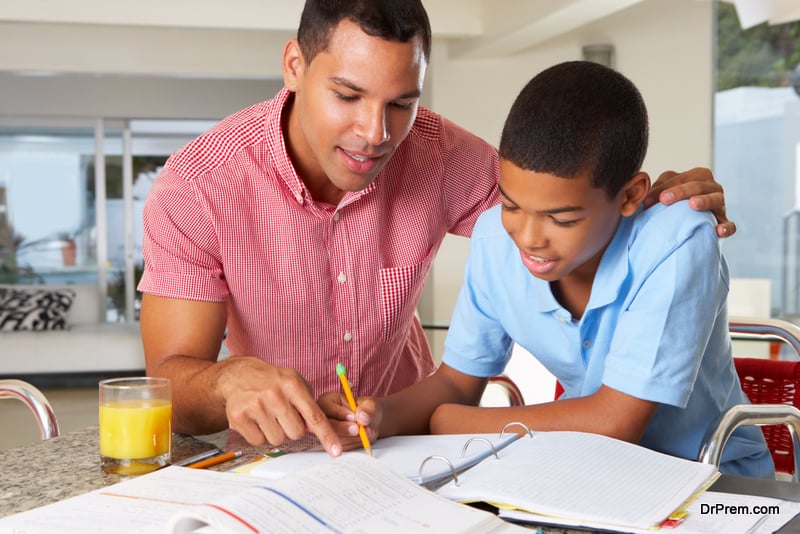Parents are a motivating force when it comes to their children’s education. Within different contexts, parents can be involved in their education in three major ways. Their involvement can be at a personal, intellectual or behavioral level. When parents engage better in several school activities, their children experience higher academic growth and development. This has also been proven by several research studies that have analyzed various dimensions of the role of parents in children’s education. Such studies suggest that observant parents can efficiently judge their children’s resource and attention requirements.
If parents feel that children need more attention by their teachers, then they can also motivate their teachers to do so. They can build a good interaction with the teachers of their kids.
Parents also play an important role when it comes to building their children’s cognitive abilities. This may be done by exposing children to several modes of learning at home. Such supportive involvement of parents also lets children perform better at school and display positive behavior. Research studies indicate that children whose parents used harsh parenting practices do not display such positive behavior patterns.
Supportive parenting is usually defined through activities like holding calm discussions with kids, treating them with warmth, being proactive at teaching, and taking interest in participating in their school activities. If these positive parenting practices are followed, then children display positive results at all educational levels.
Some adverse family factors like single parenting, stress in families or low socioeconomic status can hamper the academic growth of children over the years. Children from these types of families face adjustment problems in school. If parents discuss children’ problems in a calm manner, then their behavioral problems can be reduced.
Involved parents not only help children in overcoming peer stress, but also help them in becoming emotionally stronger and empathetic. Lack of parental involvement can also lead children on the path of juvenile delinquency and depression. Such neglected kids seek attention from negative sources and in negative ways.
Parents play a critical role during several academic transition phases of their children. It is also important that parents remain in constant interaction with teachers in order to keep track of their kids’ academic progress. Thus, children’s confident academic performance and achievements majorly depend on the way their parents remain involved in their academic activities and with their teachers.
Summary:
Parents encourage and highly motivate their children by getting involved in their educational activities. Positive parental practices support children in winning over their tough academic life.




